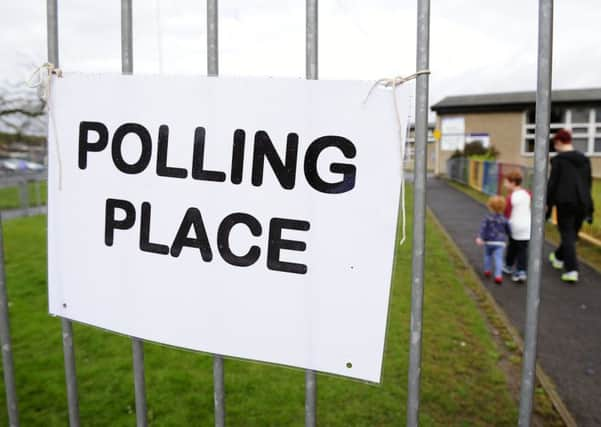General election: Politics mired in utter confusion and fatigue – Bill Jamieson


It is a strange paradox of history that major decision points in the life of a country are often arrived at through a miasma of utter confusion. Thus it is with the UK election now just a week away.
Opinion polls constructed on the basis of a non-existent “national average” suggest the Conservatives are on course to win an overall majority. But there are complex under-currents that could yet deliver an outcome closer than such polls predict.
Advertisement
Hide AdAdvertisement
Hide AdIn Scotland, the construct of a UK average does not apply: the SNP is set for a sweeping victory, fed by disillusion over the endless shambles at Westminster over Brexit and the leadership of Nicola Sturgeon whose performance in TV debates has been notably superior to that of other party leaders.
The one area of uncertainty is the extent to which her tentative support for a post-election pact with Labour could see a stronger than expected Scottish Conservative turn-out on fears that the SNP could put Jeremy Corbyn in Downing Street. For voters in the rest of the UK that would be an explosive outcome.
Down South, Liberal Democrats and Remain-leaning Labour are challenging once-safe Tory seats in London and the south-east. At the same time, the Conservatives are challenging Labour strongholds in the Midlands and the north of England.
Such are the powerful under-currents on the Brexit issue which has dominated the election battle that traditional party loyalties have been undermined – little wonder those opinion poll findings are laden with provisos and warnings that this is an election like no other.
A looming wildfire
What is evident is a clear sense of voter fatigue and an aversion to the way in which Brexit and party politics have come to dominate so much of news and current affairs. For all the dissonant voices and the evident public weariness and frustration, this has been an election that has so far failed to rise above the constantly repeated attack lines and come to life.
It has been like an expanse of tinder-dry moorland: dense with acrid, billowing smoke – but yet to burst into flame. Meanwhile, a deeper and more enduring divide is discernable between young and old: according to Kantar’s latest public polling data of UK voting intentions, if the election was limited to the under 55s, Labour would have a narrow lead (39 per cent against 36 per cent for the Conservatives), while among the over-55s the Conservatives are ahead by 30 percentage points (53 per cent against 23 per cent for Labour).
This may be a reflection of the way this election has been followed: older voters are more likely to have been tracking the election through print media and TV, while younger voters have accessed coverage through social media where Labour and the Lib Dems have been spending heavily.
According to the website Whotargets.me, Labour is currently racking up over £30,000 of spending a day on Facebook. The Lib Dems are not far behind, spending over £20,000 daily. And with a week to go, the Conservatives, despite trebling their online spend in the past few days, are still only racking up a daily spend of about £10,000.
Aggressive TV interviews
Advertisement
Hide AdAdvertisement
Hide AdThis may change dramatically on the final days of the campaign as the Tories seek to play catch-up with a social media advertising blitz.
Learning from the successful Leave campaign in the 2016 referendum and the last-minute blitz on social media, Tory online ad spend is expected to surge, with micro messages delivered to those that the Tories need onboard to win.
After all this, the pious hope is that these divisions will quickly heal after the election. But it is a divide that, together with the consequences of an SNP landslide, looks set to continue long after the results have been declared. Post mortems will focus on longer-term consequences of changing voter attitudes and behaviour.
For example, the broadcast media approach to coverage – interviews where aggressive interviewers seek to play ‘Gotcha’ with party spokespeople and the staged television leader debates which barely penetrate the constantly repeated prepared scripts and slogans – needs to change in the face of widespread viewer disenchantment.
Few insights have been delivered, for example, on the deeper problems within the NHS, or why an economy that prides itself on being the sixth-largest in the world now has an unprecedented reliance on food banks and problems with social care.
Evident in the ‘vox pop’ street interviews is a widespread sense of utter political fatigue: they cannot wait to see this campaign over and for the three-and-a-half-year Brexit imbroglio to be resolved – even though few believe it will lead to a positive uplift and economic breakthrough.
